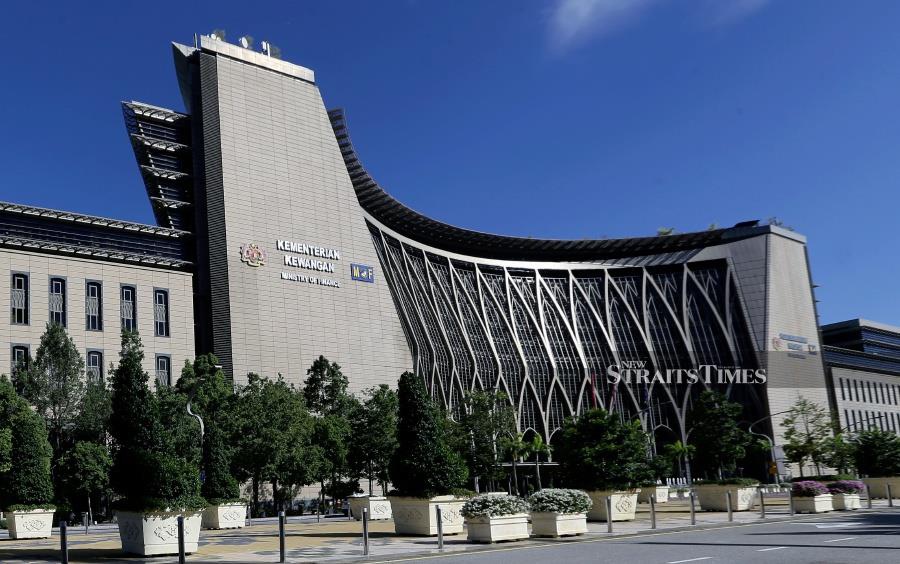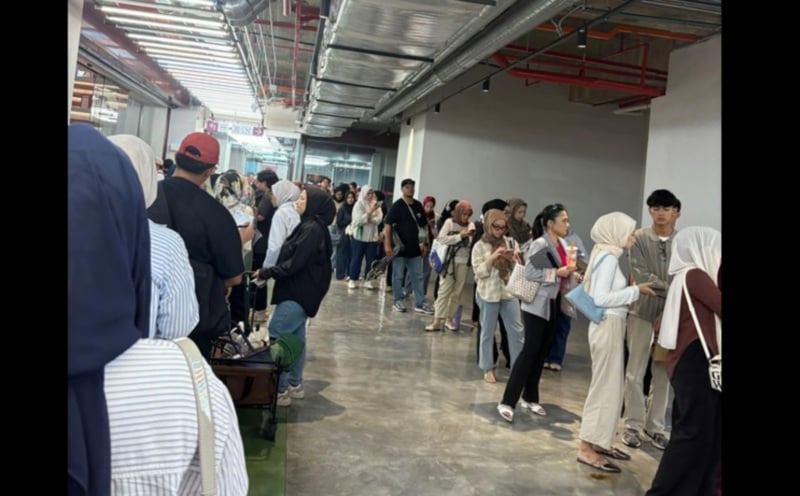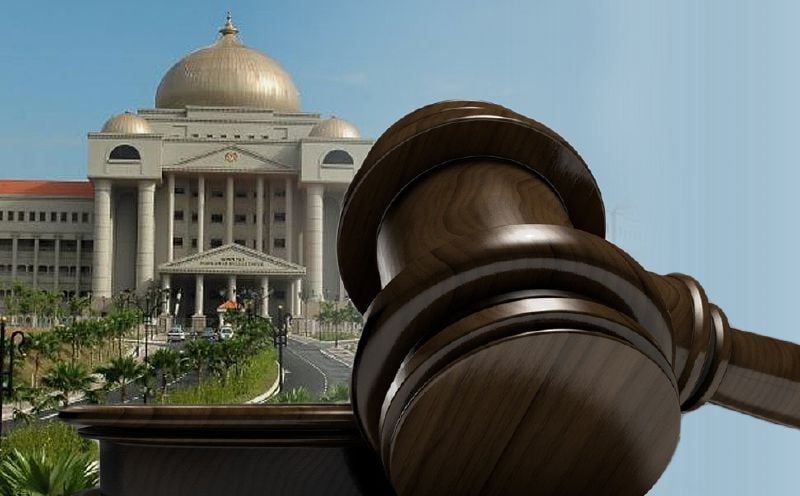KUALA LUMPUR: The third wave of Covid-19 outbreak that hit the country posed a major challenge to the government's fiscal burden, and in view of the extraordinary situation, the government has proactively extended its policy flexibility and pragmatism to protect the people and businesses as well as supporting the economy.
"The government continues to provide substantial fiscal support in 2021 in the form of additional assistance and stimulus packages to cushion the adverse impact of the pandemic and containment measures," the Finance Ministry said in its 2022 Fiscal Outlook and Federal Government Revenue Estimates report released today.
It said the government had announced eight assistance and stimulus packages totalling RM530 billion since the pandemic last year with fiscal support of RM80 billion provided under the Covid-19 Fund.
It added that the federal government's fiscal stance continues to prioritise steering the nation out of the pandemic crisis, with the provision of significant fiscal support expected to contain the outbreak, sustain domestic economic activity, generate investments, stimulate consumer spending and create job opportunities.
The ministry said the rollout of more targeted recovery measures has positively impacted the economy as reflected by the strong economic growth of 7.1 per cent in the first half of this year.
"The government is confident that with the smooth political transition as well as policy continuation and clarity, the economy will recover and record positive growth in 2021," it said.
To drive health and economic recovery, said the ministry, the government mobilised various fiscal tools to balance the spending needs and fiscal sustainability, including partial utilisation of the National Trust Fund to ensure sufficient funding and accelerate the implementation of vaccination programmes under the Covid-19 National Immunisation Programme.
"As a result, Malaysia's vaccination rate is among the fastest globally, thus allowing the government to reopen more economic sectors to boost the economy," it said.
In addition, the socioeconomic and development agenda remains the top priority for the government in the medium term as stipulated in the 12th Malaysia Plan (12MP) 2021-2025.
Consequently, fiscal resources will also be directed to implement programmes and projects under the 12MP, which will serve as a catalyst in charting the path for a prosperous, inclusive and sustainable nation.
In this extraordinary situation, said the ministry, the government has tabled a motion in parliament to increase its statutory debt limit, taking into account the financing needs of the recovery measures and the implementation of 12MP.
"In the 2021 Budget, the government initially projected the fiscal deficit to reduce to 5.4 per cent of GDP, based on the assumption of steady economic recovery in the second half of 2020 and the expected spillover into 2021.
However, the emergence of new Covid-19 variants had posed big challenges to the government in protecting the rakyat, businesses and economy," it said.
Revenue is estimated to be lower at RM221 billion or 14.6 per cent of GDP in 2021, a shortfall of 6.7 per cent from the budget estimates, it said, while expenditure has also been reprioritised to accommodate the additional assistance and economic stimulus packages, resulting in higher spending requirements under the Covid-19 Fund.
Thus, total expenditure is expected to remain significant at RM320.6 billion, lower by 0.6 per cent than budget estimates of RM322.5 billion.
The operating expenditure (OE) will be rationalised by 7.1 per cent or RM16.9 billion at RM219.6 billion, mainly from supplies and services as well as grants to statutory bodies with high reserves.
Similarly, development expenditure (DE) is expected to fall by 10.1 per cent to RM62 billion from budget estimates of RM69 billion.
The ministry said several development projects were reviewed and rescheduled following the implementation of the MCO, which affected the progress of the projects, however the Covid-19 Fund allocation is estimated to increase by 129.4 per cent or RM22 billion to RM39 billion to finance the additional assistance and stimulus packages.
"The longer-than-expected pandemic has forced the government to increase its spending capacity in providing additional fiscal support. Thus, the federal government's fiscal deficit is projected to widen to 6.5 per cent of GDP due to additional fiscal injection coupled with lower GDP projections.
Similarly excluding debt services charges, the primary balance is expected to increase to 3.9 per cent to GDP, said the ministry.
The economic outlook in 2022 is expected to improve further and return to the potential growth trajectory, supported by broader vaccination coverage and stable domestic and external demand.
The federal government's revenue collection in 2022 is estimated to be higher at RM234 billion or 14.3 per cent of GDP driven by the anticipated increase in tax revenue collection to RM171.4 billion and non-tax revenue to RM62.6 billion.
Similarly, total expenditure is budgeted to be slightly higher at RM332.1 billion or 20.3 per cent of GDP, attributed to higher OE at RM233.5 billion and DE at RM75.6 billion while the remaining RM23 billion is for the disbursement under the Covid-19 Fund.
The increase in OE is mainly due to supplies and services, debt service charges as well as emoluments said the MoF.
DE allocations will be mainly directed towards the implementation of programmes and projects under the 12MP, among others, including the Electrified Double Track Rail Gemas-Johor Baru, Rapid Transit System Link and Pan Borneo Highway.
"After considering revenue growth and expenditure requirement, the fiscal deficit is expected to moderate to 6 per cent of GDP, it concluded.
Meanwhile, Prime Minister Datuk Seri Ismail Sabri Yaakob, in the report's foreword, said the government is committed to pushing for more refined, targeted policies to drive economic recovery, rebuild resilience and catalyse reforms.
"To achieve that, the 2022 Budget is formulated to address both near-term economic revitalisation efforts as well as medium-term rebuilding and reform strategies which will bring to life the aspirations espoused in the 12MP.
"As much as the government's short-term policies are important to drive our socioeconomic recovery in 2022, it is equally critical that we strengthen the foundations of longer-term institutional and fiscal reforms for rebuilding our resilience post pandemic, so that we are ready to face any similar major setback in the future," he said. – BERNAMA
















